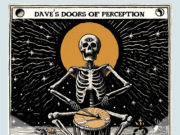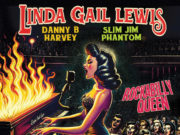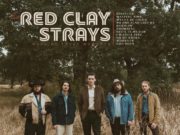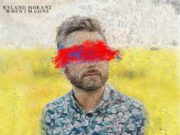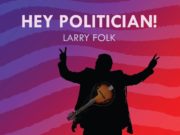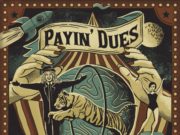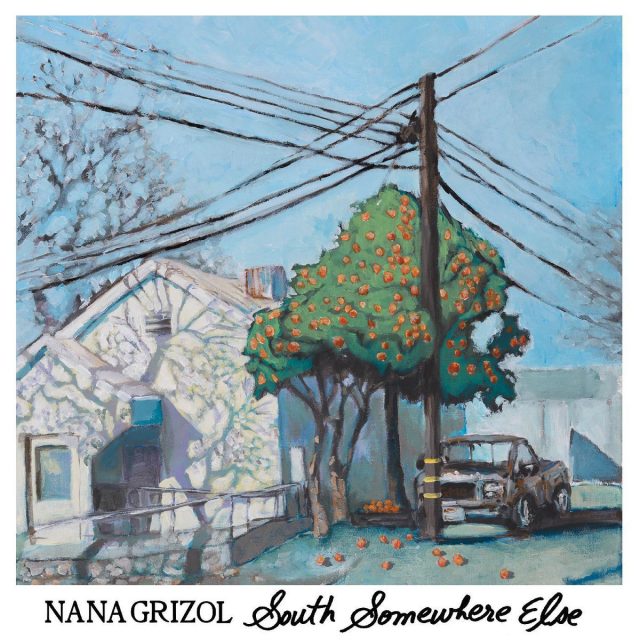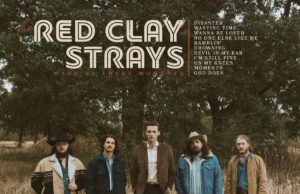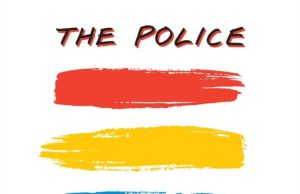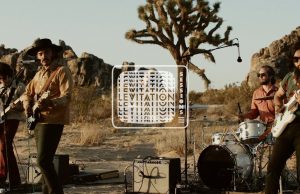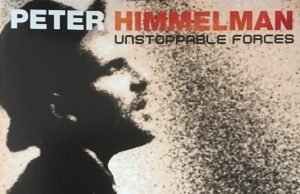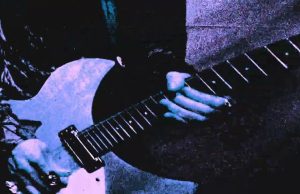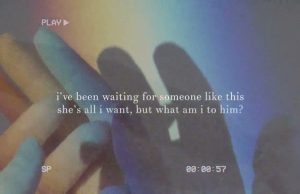“Nana Grizol is a queer rock band from Athens, Georgia.” That’s the one-sentence bio on the group’s Facebook page. And while it may be accurate — not to mention short and to the point — it seems kind of reductive. Especially after listening to their fourth full-length South Somewhere Else. As singer-songwriter Theo Hilton and his bandmates mix, match and meld post-punk, indie-pop and horn-fuelled folk-rock, the frontman sifts the ashes of his own tumultuous southern upbringing, pointing out the hypocritical divisions of race, class and power that persist even in a supposedly liberal enclave like his hometown. That important story — and the hard but essential truths it reveals — can barely be expressed and contained in a single album. Never mind a single sentence. No matter how accurate it might be.
THE PRESS RELEASE: “On South Somewhere Else, Theo Hilton uses the band’s fourth album to shine a light on the southern queer experience beyond feelings of isolation and onto his own privileged experience as a white man who grew up in a left-leaning, affluent college town. Some 17 years in, it is not enough for Hilton to simply sing sad love songs about boys, but to examine his personal concept of home, and to look unflinching at his own distant feelings about “the south” and his own complicated history of place. Perhaps his 2016 move to New Orleans was the change of scenery that prompted such introspection. Athens is a city that prides itself on being the opposite of a southern stereotype, but songs like We Carry The Feeling take time to ruminate on the shame Hilton felt at being queer in the Athens punk community, a shame that supposedly isn’t supposed to exist in a town with such a liberal self-identity. The idea of Athens is very different from the reality of being there, and the difficulty of that reckoning is a vein that runs through the length of the album. Activism and allyship continue to be front-and-center themes for Hilton, who is marginalized as a queer person but privileged as a white cisgender man. Acknowledging such personal dualism is also a bit of a reckoning, and he uses that privilege for good in Plantation Country, which calls out plantation tourism in New Orleans and the racial violence that is perpetuated when such spaces are aestheticized. Jangle Manifesto examines allyship in particular to activism that seeks to absolve the privileged of guilt instead of undermine systems of oppression. The song takes its major inspiration from James Baldwin’s writings on abolitionist John Brown, and Autumn is heavily influenced by Toni Morrison’s final novel, God Help The Child.”


